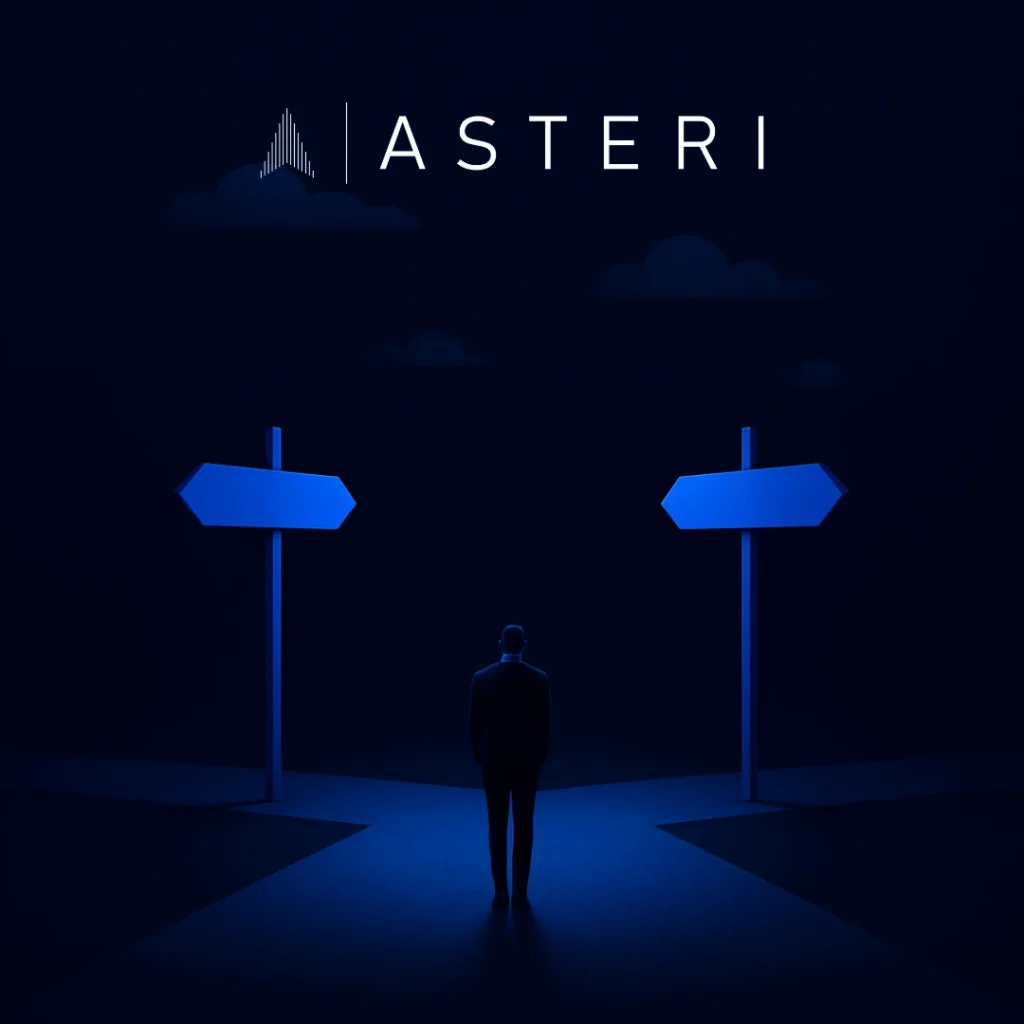
The E-E-A-T principle has for some time now been inseparable from a quality website – in the eyes of both users and algorithms. It motivates search engines to make your content more visible and potential customers to be more confident in choosing you as a service provider or vendor. Without the E-E-A-T \”spice\”, it is hard to imagine today not only SEO optimisation but also the increasingly popular AEO services. Even AI tools such as ChatGPT or Gemini rely primarily on sources that meet all four E-E-A-T requirements when answering user questions. However, while some businesses are already mastering this principle, others are still floundering, not knowing where to start – and remain in the shadow of competitors who are already creating expert content. So what should your website (and perhaps even the content beyond it?) look like to captivate both your target audience and the Google or AI search tools they love and actively use?
- Briefly
- What is E-E-A-T?
- From E-A-T to E-E-A-T: why the need for change?
- Why should we ignore the E-E-A-T principle?
- SEO optimization: which best practices should be included in the strategy and which ones should be forgotten? Is E-E-A-T on the recommendation list?
- Clear value – the best foundation for SEO
- AEO optimization: artificial intelligence also assesses the credibility, expertise and authority of content
- Be among the sources trusted even by artificial intelligence
- AI support for expert content production – a help or a replacement for the copywriter?
- Checklist for E-E-A-T value-adding content
Briefly
- E-E-A-T is the four pillars of content quality: experience, expertise, authoritativeness and trustworthiness.
- Today, Google\’s positions are not only determined by keywords, but also by the reputation of the content, based on the E-E-A-T principle.
- Artificial Intelligence Search (AEO services) also relies on reliable sources that match E-E-A-T.
- AI-generated content, augmented and edited by humans, allows for authenticity and compliance with the E-E-A-T principles while creating content efficiently.
What is E-E-A-T?
E-E-A-T is an abbreviation that translates into four words in English: Experience, Expertise, Authoritativeness and Trustworthiness. In English, it stands for Experience, Expertise, Authority and Trustworthiness. These principles define what content is considered to be of high quality, trustworthy and useful to both the user and the algorithm. A brief description of each of the four elements:
- Experience – evidence that the author of the content has been exposed to the topic in practice: lived through a situation, performed an action, tried the product or service presented. It creates an impression of personality and credibility.
- Expertise indicates that the author has the knowledge, skills or qualifications to speak about what is presented in the content. This is particularly important in areas where misinformation can have negative consequences for the user of the content (e.g. medicine or finance).
- Authority (authoritativeness) covers not only the reputation of the author, but also the reputation of the website itself – i.e., how often the brand and domain are mentioned in external sources (and in what context, positive or negative). Being a recommended expert in your field and building external links (off-page SEO) helps to build authority organically.
- Trustworthiness is the answer to the question \”Can I trust this source and its creator?\”. Trust is built on a number of different factors, some of which include the clear identity of the author, acknowledgement of sources, a safe website, transparency, contact and other relevant information.
From E-A-T to E-E-A-T: why the need for change?
For those who are a little more familiar with the subtleties of content creation and website optimisation, you may have heard the term \”E-A-T\”. But what has changed to finally add another letter E to this principle?
In assessing which sources should appear in the top positions of search results, Google\’s algorithms were originally based on the E-A-T model, which did not distinguish experience as an independent criterion. Over time, and with the growing influence of social networks and content creators, the need for a separate assessment of live, real, personal experiences has become apparent. This is what consumers are particularly looking for, not only in terms of knowledge but also in terms of practical, real-life insights. This has led to the development of a refined model, E-E-A-T, where the first \’E\’ emphasises the value of experience in modern content.
Why should we ignore the E-E-A-T principle?
If we had to name what generally distinguishes a good text from a bad one, the answer would undoubtedly be… E-E-A-T. Experienced copywriters and experts in their field usually already use these criteria intuitively. And for good reason – they are the cornerstones of quality content, an impeccable reputation and growing attention.
What happens if we ignore E-E-A-T in our textual and visual content? There are various possible consequences:
- Reduced trust in the brand. Content without clear sources, arguments or expertise is the most direct route to a rejection reaction. Why should a consumer read something that raises doubts when behind a few buttons lies a much more credible and higher-value competitor?
- Weakening domain authority. A website without citations, a broad external link profile and a positive reputation risks lowering the current domain ranking or making it increasingly difficult to raise it. And low domain ranking = low position in search results.
- Rising rejection rate. A visitor clicked on a website, but it didn\’t leave a credible, valuable impression of the business? The likely result is that the website is abandoned and the user does not become a potential customer, i.e. the likelihood of conversion decreases.
SEO optimization: which best practices should be included in the strategy and which ones should be forgotten? Is E-E-A-T on the recommendation list?
For a long time, SEO has been much more based on technical tricks: excessive keyword stuffing, visually hidden text or extremely concise content that is technically compliant, but does not provide any real value to the user. However, as search engine algorithms change, so do SEO recommendations.
Like any business that cares about a satisfied customer, tools like Google or AI applications try to help consumers, not to simulate value. That\’s why algorithms have been focusing on user experience (UX) for some time. What does this mean? Today, only those who provide trustworthy, informative and clearly understandable content can rank high in search. Short, keyword-laden text is giving way to detailed, long-form content with an intuitive structure, subtly and strategically placed keywords, and clear value for users. All of the latter criteria are based on the E-E-A-T principle.
Clear value – the best foundation for SEO
Well-structured, expert and keyword-rich content at the right time and in the right place is what becomes your strongest sales tool. Let ASTERI make sure it\’s found not only by consumers, but also by Google and, gradually, by artificial intelligence search engines.
AEO optimization: artificial intelligence also assesses the credibility, expertise and authority of content
AEO (Answer Engine Optimisation) is the process of optimising content so that artificial intelligence applications (e.g. ChatGPT, Gemini, Bing AI) choose you as a trusted source of answers.
We already know that E-E-A-T is a crucial part of SEO strategy. But what about the latest trend in digital marketing – AEO optimisation? Can we look for common ground between AEO and E-E-A-T or are they now areas that have nothing in common?
It\’s no secret: SEO and AEO have a lot in common, and a high-quality website that appeals to consumers, Google and AI cannot do without both. Therefore, one of the most important criteria for evaluating content in AI is also E-E-A-T.
AI applications also look for content that not only answers the question the user is asking, but does so in a reliable and expert way, by analysing the information available online. What exactly do AI algorithms look for when selecting a source of information to generate an answer?
- Comprehensive, well-reasoned but clearly presented information → reflects expertise.
- Personal experience, practical context → indicates experience.
- Whether other sources cite, share, recommend the author\’s content → build authority (authoritativeness).
- Visibility of author, sources, credibility of the site → trustworthiness.
Be among the sources trusted even by artificial intelligence
The AEO is no longer the future, but a tool that businesses seeking visibility should take TODAY. Want to be among the sources that AI chooses to respond to? It will take not only technical preparation, but also clear, reasoned and credible content. Professional AEO services combine both – let\’s discuss how they can benefit your business!
AI support for expert content production – a help or a replacement for the copywriter?
ChatGPT, Gemini or any other artificial intelligence application has become the starting point for most people to start creating content. No wonder – modern tools that can be mastered in seconds and seemingly produce masterful results are truly impressive. Even more striking and even more gratifying is the acceleration of work processes. However, first impressions that seem perfect are not always correct.
AI is a true expert in content skeleton, structure, idea generation and information retrieval. Unfortunately, when the conversation with ChatGPT (or any other tool) turns to a specific area, a particularly deep question or a question that has not yet been discussed on the internet, it becomes difficult to get an accurate, high-quality answer. Why? While AI can help you shape your content, it is not an expert in your field. AI does not generate unique insights based on personal experience. It reproduces what it has already \”read\” online, often even on your competitors\’ websites. And sometimes it even speaks factually incorrectly – this is called AI \”hallucinations\”.
Aiming for E-E-A-T compliant content, but not enough time to create it from scratch? AI can be a great helper, but finding the balance is crucial. Authentic experiences, case studies, personal insights – these are the elements a human should bring to the text. And that is what makes content credible, expert and valuable to both other readers and algorithms.
Checklist for E-E-A-T value-adding content
When creating content, we often think too much about SEO, keywords, volume or tone, but we often forget what\’s most important: does our text really inspire trust, convey the knowledge we want to share and reflect real, expert experience?
Finally, here\’s a short checklist to help you see if you\’re creating in a way that meets the expectations of readers, Google\’s algorithms and artificial intelligence?
Ask yourself: is my content…
- …based on personal or real (e.g. client) experience, not just theory?
- …demonstrates expertise – concrete examples, facts, statistics?
- …credible – the author and sources are clearly identified and the information is factually correct?
- …logically structured, comprehensible and not overloaded with keywords?
- …might be worthy of a backlink – would another site be confident to point it out as a reliable, recommended source?




